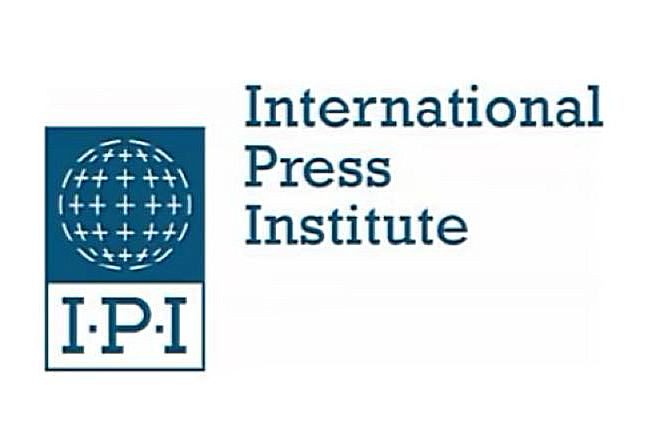IPI denounces designation of Zerkalo as “extremist formation”
The International Press Institute (IPI) and its global network today denounce the decision by authorities in Belarus to designate Zerkalo, the country’s most popular independent news site, as an “extremist formation”.

Zerkalo was previously declared “extremist” by the regime soon after the media outlet was founded in July 2021. However, Zerkalo’s new “extremist formation” status drastically worsens penalties not only for the media’s journalists, but also for its readers.
Journalists and other Zerkalo employees now face up to 10 years in prison for their work, according to article 361.1 of the Belarusian criminal code.
Zerkalo readers now also face harsher penalties for any interactions with the news outlet. While reading the outlet’s publications remains legal in theory, any activity considered as “assistance to an extremist formation” is punishable. Previously, readers could be fined up to 1,100 rubles (approximately 400 euros) or detained for up to 15 days for sharing Zerkalo publications. They now potentially face up to seven years of prison under article 364.4 of the criminal code.
Additionally, readers who donate to the media outlet are now considered to be “financing extremist activities”, according to the article 361.2 of the criminal code, and face up to eight years in prison.
What constitutes “assistance to an extremist formation” is unclear – further raising the risk of a chilling effect among readers – and its application has been vague. Individual cases of Belarusians put in prison for “assisting an extremist formation” are already known. In January, Darya Losik, the wife of imprisoned RFE/RL journalist Ihar Losik, was sentenced to two years in a penal colony for having given an interview to Belsat TV, an independent Belarusian media outlet based in Poland which is also labelled as “extremist”.
“Zerkalo’s designation as an ‘extremist formation’ is yet another step in the Lukashenko regime’s planned eradication of all independent media and critical voices in Belarus”, said IPI Deputy Director Scott Griffen. “While we can only agree with our Belarusian colleagues that this decision is hardly surprising in the current context, we are still appalled by the outrageous and paranoid drive of the country’s security officials in repressing Belarusian journalists and society at large.”

Zerkalo communications director Aliaksandra Pushkina told IPI: “I was rather surprised that we still didn’t have this status, as many of our colleagues in other independent Belarusian media outlets were already ‘extremist formations.’”
“This [new status] creates risks for our readers, for our families [in Belarus], which is why we also instantly saw people unsubscribing from our social media accounts. People will probably continue reading us, but this is a loss for us in any case. In theory, reading us is not forbidden, but if authorities see [Zerkalo] content on your phone, even if you didn’t share it and only received it [from someone], you can still be sentenced to [up to 15 days of] arrest. And this is one of the lighter measures against independent media, as subscriptions and shares are now a criminal offence.”
“Our journalists are abroad, so we aren’t under direct threat, but most of us have families in Belarus. For this reason, most of us do not work publicly, and the consequences of this decision may be felt by the relatives of the few of us [who are not anonymous], including me.”
“All of these efforts by the state only aim to silence us, to have readers in Belarus accept what is happening in the country and to not look around [for other options]. For over three years, and two years already at Zerkalo, we tell Belarusians the real news, without paying attention to statuses [decreed by authorities]. And we will continue doing this. We hope that we will not face issues immediately and that this will be resolved when freedom of speech returns to Belarus.”
According to independent estimates, no less than 491 online media outlets, mirror pages and news aggregators were blocked in Belarus as of December 2022, with this number only having risen since. Thirty-seven media workers are currently behind bars, making Belarus one of the most dangerous countries for journalists in the world.
Read more:
“I stay so that those who have been imprisoned or forced to leave have a place to return to”. Motivations of journalists who choose to stay in Belarus
“If one of us is imprisoned, the other one takes the child and leaves the country.” The key from the report of human rights activists on the psychological state of political emigrants
BAJ logo declared extremist
 @bajmedia
@bajmedia
